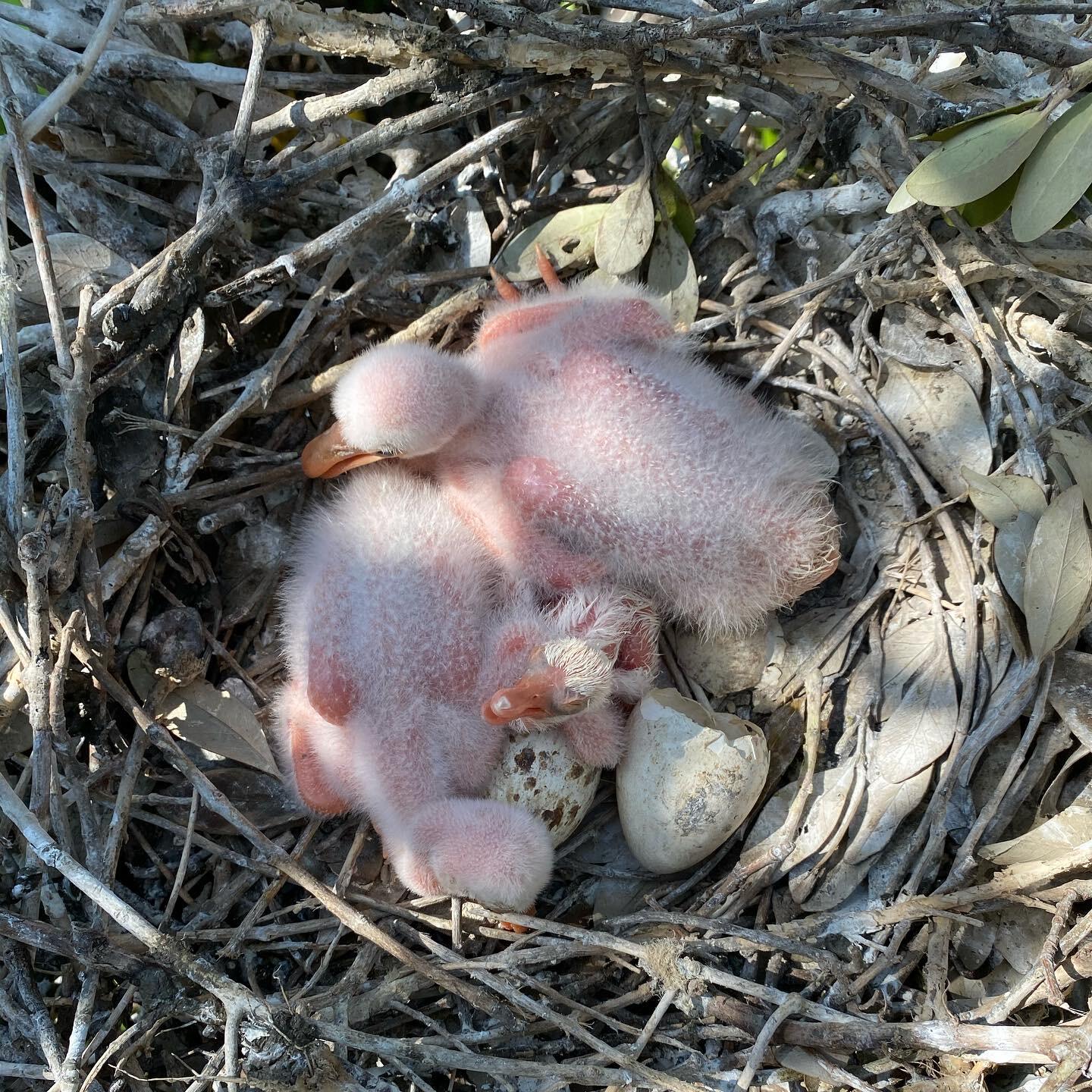They are pink, they are fuzzy, and they look a lot like little dinosaurs: Seasonal Field Technician Casey King has spotted her first Roseate Spoonbill nest of the day.
Each winter, the Everglades Science Team (ESC) conducts surveys of Roseate Spoonbills and wading birds to gauge the health of South Florida populations. Boating up to a key in Florida Bay, ESC staff surveyed the island to both check for new nests and revisit known nests. After recording nest occupancy, they will return 10-12 days later for a re-check.
"I was lucky enough to watch the chick hatch," explains King, referencing the photo above. "He was hatching while we were surveying. That chick is only 20-30 minuntes old! The other chicks in the nest are about two days old."
Roseate Spoonbills are "canaries in the coal mine" for the Everglades ecosystem as a whole. If they do well, researchers know the Everglades is doing well. Unfortunately, sea level rise and fluctuating water levels have made successful nesting more difficult for this iconic bird. As a species, they are already moving north in search of better breeding territory.
To see an infographic illustrating how water levels affect spoonbill populations, click here.
While watching the young spoonbills is rewarding, survey routes necessitate hard work in difficult environments. "The work can be physically demanding," King says, "It's a ton of boating, paddling, slogging, and climbing trees." But for King, the birds themselves drive her efforts.
"Honestly, the work I do is beyond rewarding," she continues, "As a bird lover, since birth it seems, for me this job shows that 'if you love what you do, you will never work a day in your life.'"





